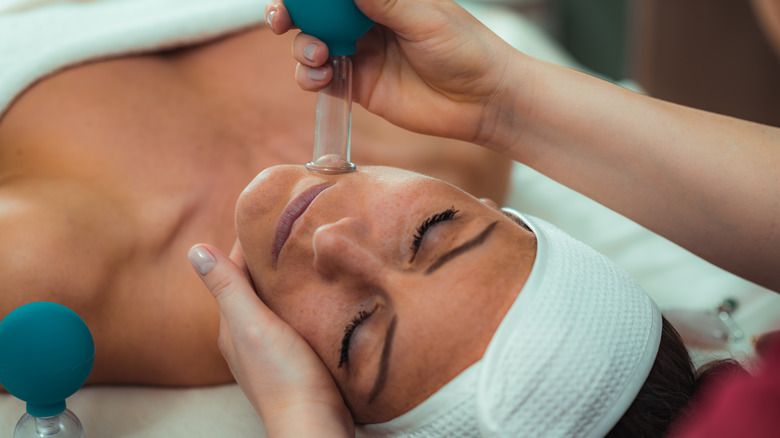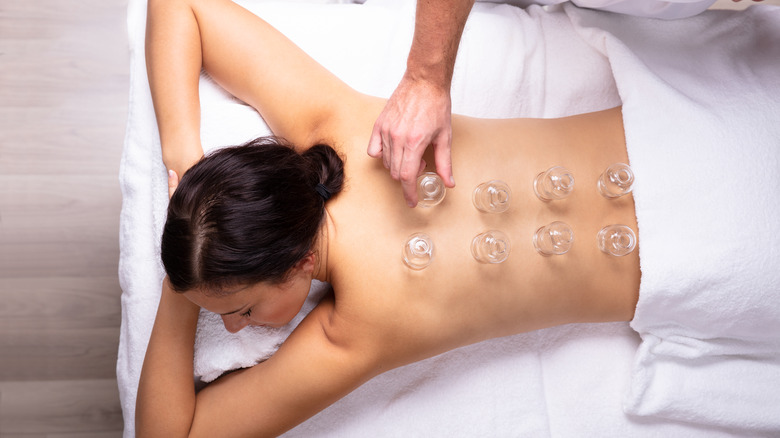Who Should Avoid Cupping
Michael Phelps made headlines in the 2016 Rio Olympics not only for his gold medals but also for the questionable bruises on his swim-strong body. He said those bruises were from cupping, which helped improve his recovery and reduce pain. You might have seen Kim Kardashian post about facial cupping, and other celebs like Gwyneth Paltrow and Jennifer Aniston have appeared on the red carpet bearing similar bruises.
Cupping isn't new. It's an ancient practice used in China and the Middle East. It starts with heating glass or silicone cups and placing them on the body. The heat creates a suction as it's placed on affected areas. This pulls up the skin and draws nutrient-rich blood to the area. It breaks blood vessels, so the body treats it as an injury and begins the healing process. According to Cleveland Clinic, cupping can manage arthritis, asthma, carpal tunnel syndrome, or migraines. It can also help with pain in the back, knee, neck, and shoulder. However, there's been little research to show the effectiveness of cupping. Instead, some of the healing effects of cupping might be due to the placebo effect. In other words, if you think it works, it just might.
Even though it is generally safe if conducted by a qualified professional, cupping might not be best for everyone.
When cupping might not be for you
Wet cupping involves making a tiny incision in the skin so that blood and toxins leave through the puncture wounds. Therefore, if you have blood disorders or blood-clotting problems, this type of cupping might not be best for you. You'll want to check with your doctor if dry cupping is ok.
According to Banner Health, you'll want to avoid cupping if you have liver, kidney, or heart failure. If you're pregnant, cupping shouldn't be on your abdomen or lower back. Because cupping involves direct contact with your skin, it shouldn't occur in places where you have an open wound or an infection. You'll also need to be careful about blood diseases such as hepatitis B and C if the cups aren't properly cleaned between patients.
The National Center for Complementary and Integrative Health says that cupping can make eczema and psoriasis worse. Cupping on the scalp might be dangerous because it could cause bleeding inside your skull. Because cupping often leaves bruises that last up to two weeks, you'll want to tell your doctors so they don't suspect physical abuse.


